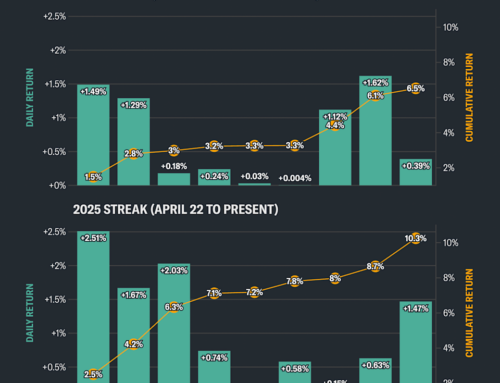‘Irreplaceable habitat’: planning bill raises fears for England’s chalk streams
May 2, 2025
Walk along the gin-clear River Itchen in Hampshire and you might see otters, salmon, kingfishers and clouds of mayflies, all supported by the unique ecosystem of the chalk stream.
The UK has no tropical rainforests or tigers; its wildlife is arguably more modest in appearance. But its chalk streams are some of the rarest habitats in the world – there are only 200, and England boasts 85% of them. If you look properly, they are as biodiverse and beautiful as any rainforest.
Despite the rarity and importance of these very pure rivers, which are full of minerals from the chalk aquifer, they have no specific legal protections. Environmentalists fear the Labour party’s planning bill will use the country’s departure from the EU to make it legal for developers to destroy them, as long as they offset the damage by paying into a fund to create nature somewhere else.
“Chalk streams are an irreplaceable habitat. They are incredibly fragile and incredibly rare, but we suck up our drinking water from them and dump our sewage in them,” Debbie Tann, the chief executive of the Hampshire and Isle of Wight Wildlife Trust, said.
Chalk streams currently have some protections under the EU-derived habitats directive, which safeguards some of the rare creatures the streams support. But Labour’s new planning and infrastructure bill overrides these protections, allowing developers to pay into a nature restoration fund instead of avoiding destruction and pollution in building. While this tradeoff will be beneficial in some cases, nature campaigners argue that you cannot offset damage done to a rare habitat as irreplaceable as a chalk stream.
Tann said: “I think the levy is almost designed to create a replacement or an alternative habitat somewhere else for the thing that you’re impacting. That isn’t going to work in a chalk stream context. You can’t just create a new one somewhere else.”
The Itchen looks flawless, its sparkling waters full of healthy vegetation, fish and invertebrates. Some ecologists are sampling the life in the river’s substrate; one little scoop of dirt and pebbles is teeming with life, from mayfly and caddisfly larvae to shrimps, sticklebacks and a long, wiggly leech.

But the river is having to fight back against many pressures, from sewage that bubbles up from a nearby maintenance hole to abstraction for drinking water, as well as a new discharge pipe that will pump runoff directly from the motorway into its pristine waters.
The river’s protectors say there is not much more it can take. Ideally, these rivers would be surrounded by meadows that could soak up some of the pollution brought by heavy rainfall.
Tann said: “This is one of the best chalk streams in the country. It looks beautiful and is in pretty good condition, but it is suffering from climate change impacts. We do have pollution issues here. The surrounding land is not acting like a good buffer because it is full of housing and industrial estates. So any runoff with these extreme rainfall events will bring pollution straight into the river, so we’re just compounding more and more pressure on these really precious habitats.”
Labour picked up votes in last year’s general election by focusing on the sewage scandal, in which water companies have been allowed to dump human waste into the UK’s rivers and seas. Keir Starmer promised to clean up the country’s rivers.
People would not forget if broken promises meant their local river getting polluted further, Martin De Retuerto, the Hampshire and Isle of Wight Wildlife Trust’s head of nature recovery, said.
“The level of engagement and activity on these rivers by local people is really high now, and I think that there could be a bit of a tipping point amongst people in how they view those in charge, if river protection is not taken seriously.”
Labour would not be able to change the law on habitat protection had Brexit not happened, as it would mean flouting the EU habitats directive. “This is a Brexit disbenefit of the highest order,” Tann said. “We’ve had successive governments promise to strengthen protections after Brexit, but this is the opposite.”
Some of our chalk streams are dying or already dead. The River Ver near St Albans, Hertfordshire, dries up every summer as it is so overabstracted, and poor management means the gravel on which fish should spawn is often covered in a thick layer of silt.
The Itchen has enjoyed some protections as it is a major fishing river, so has had the protection of anglers, and it also has the Wildlife Trusts looking after it. In turn, the river has taken care of the local city, Winchester.
De Retuerto said: “In 2014 we had some very severe floods, a one-in-200-year event. Arguably, the city did not flood anywhere near as badly as it would because of the floodplain restoration we’ve done here.
“Climate breakdown means we’re going to experience far more extreme flooding events as well as drought events, and we’re a bottleneck for the city. So this site will continue to do its part, but there’s a point where it can’t recover sustained frequency of more extreme events as well as soaking up all the other pressures it faces.”

The Wildlife Trusts have supported an amendment to the planning bill, tabled by the Labour MP Chris Hinchliff, that would enshrine protections for chalk streams as irreplaceable habitats. Planners would have to ensure they were not harming the rare habitats with abstraction, pollution or runoff when designing their developments.
Tann said: “We would like to see chalk streams properly classified as an irreplaceable habitat and have proper protection within planning. We’re not anti-development. We never have been, but it’s about the right development in the right place, and there has to come a point where there’s just too much surrounding these precious sites.”
But Starmer has described people such as Tann and De Retuerto as “blockers” because of their nature campaigning. The government has also described nature protections as “red tape” that needs to be cut.
Tann said: “Why call that red tape? You wouldn’t call protecting St Paul’s Cathedral red tape.
“These streams are part of our identity as a country. And it’s not true that getting rid of nature protections is somehow this magic bullet that’s going to enable economic growth. It’s the wrong answer to the problem, and it’s not going to help. And in the meantime, we will lose these last bits of incredibly important natural environment that we have.”
Search
RECENT PRESS RELEASES
Related Post




